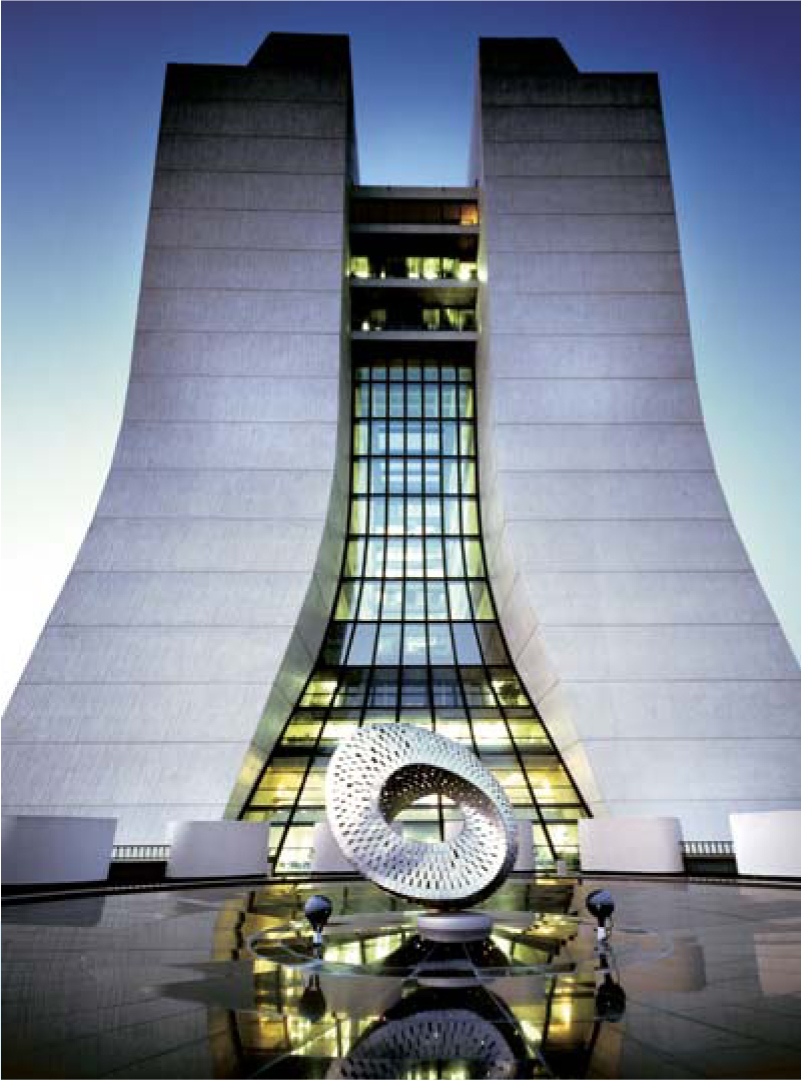Fermilab’s new management looks to land linear collider
DOI: 10.1063/1.2709551
As of 1 January, the Universities Research Association (URA), which has managed Fermilab since the lab’s inception 40 years ago, is sharing the responsibility with the University of Chicago. The Department of Energy (DOE) awarded the pair’s Fermi Research Alliance a $1.6 billion, five-year management contract.
“This is new management for a new era,” says Michael Turner, an astrophysicist at Chicago and a member of the FRA board. With other high-energy labs winding down or shifting focus (see Physics Today, May 2005, page 26
Fermilab has increased its breadth, agrees lab director Pier Oddone. “But we’re betting on the ILC [International Linear Collider] for the future of the lab.” This bet dovetails with the recommendations in a recent National Research Council report, Revealing the Hidden Nature of Space and Time (see Physics Today, June 2006, page 26
URA, an association of 90 universities, “brings breadth and is responsive to the needs of the nation,” while the University of Chicago “is an institution of substance ready to stand behind the lab,” Oddone says. Collaborations between Fermilab and nearby Argonne National Laboratory will increase, thanks to the two sharing Chicago as an overseer, he adds. And the FRA team is bringing in “a group that should help in terms of business management,” says University of Chicago president Robert Zimmer, who chairs the FRA board. “This follows a trend within DOE of trying to get corporate expertise in to help with the efficient use of money, accountability, and controls.”
In addition, several Illinois universities are represented on the FRA board. “These partnerships will give us more horsepower,” Oddone says. “The state will have to be part of making Fermilab attractive internationally” as a host for the ILC.
Also on the FRA board are the UK’s Ian Halliday and Japan’s Yoji Totsuka. “It shows from the beginning that Fermilab and the board are trying to connect what they do to the needs of the international community,” says Barry Barish, who heads the ILC global design effort. “This could be crucial for orchestrating an almost impossible marriage—between the Department of Energy and international funding agencies.”
Siting the ILC at Fermilab hinges on foreign scientists feeling confident that they’ll be able to get visas to enter the US. And building it at all hinges on the cost—an estimate is being readied this year—and on the science results from the Large Hadron Collider, which is set to start up at CERN next year. “No one wants to say this out loud, but if the LHC is not wildly successful, I don’t think anyone will ask for the ILC,” says Turner. “I for one am bullish on the LHC and believe there will be big discoveries early on that will make the case for the ILC irresistible.”

Fermilab, right, is positioning itself to make a strong bid to host the next big particle accelerator.
PETER GINTER

More about the authors
Toni Feder, American Center for Physics, One Physics Ellipse, College Park, Maryland 20740-3842, US . tfeder@aip.org





